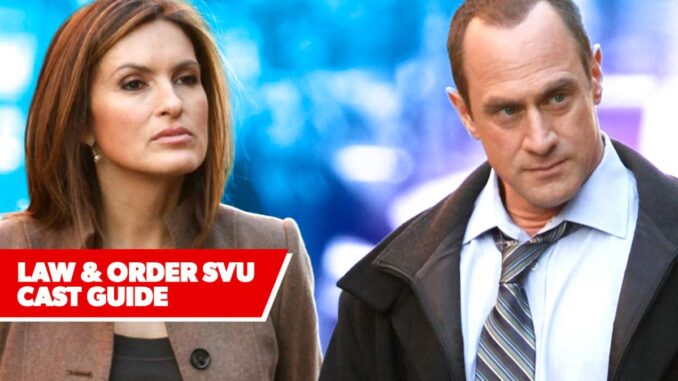
The Unlikely Crucible: How SVU Forged Healing from Loss for Mariska Hargitay
For a quarter-century, she has been the unwavering North Star in a storm-tossed sea, the steadfast beacon of justice in a world too often shadowed by cruelty. Mariska Hargitay, embodying Olivia Benson on Law & Order: SVU, has become synonymous with resilience, empathy, and the quiet strength of healing. Yet, behind the iconic detective’s unwavering gaze lies a profound personal narrative, a story of an early, shattering loss that paradoxically found its most potent form of healing within the very narratives of trauma she has brought to life on screen. The show, a relentless mirror to human suffering, became for Hargitay an unlikely crucible where personal sorrow was transmuted into profound purpose, and where the echoes of her past found a surprising, cathartic solace.
The foundation of Mariska Hargitay’s deepest empathy was laid in a moment of unimaginable tragedy. At the tender age of three, she endured the sudden and public death of her mother, the vibrant and iconic actress Jayne Mansfield, in a horrific car accident. This wasn't merely a loss; it was a severing, a void too vast for childish understanding, leaving an imprint of absence and vulnerability that would shape her life. The ground beneath her feet, suddenly, brutally, gone. For years, this profound grief, unaddressed in its full complexity, simmered beneath the surface, a silent companion to her burgeoning life and career. How does one mend a wound inflicted before memory fully forms? How does one process the loss of a mother who remains an eternal, beautiful ghost?
Enter Law & Order: Special Victims Unit. When Hargitay stepped into the role of Detective Olivia Benson, it was more than just another acting gig; it was a calling that resonated with the deepest chambers of her being. Olivia Benson, a character forged in the crucible of her own difficult past—a child of rape, a survivor of an abusive father—was inherently, profoundly empathetic to victims. She wasn't just investigating crimes; she was bearing witness to the wreckage of human lives, holding space for unimaginable pain. It was a role that called not just for a performer, but for a vessel, a conduit through which stories of violation and resilience could flow.
For Mariska, the daily immersion in stories of trauma, abuse, and the long road to healing became a unique, albeit unconventional, form of therapy. Each script, each scene, each victim's narrative offered a new facet of pain, a new pathway to understanding the human spirit’s capacity for both suffering and recovery. In portraying Olivia Benson’s unwavering dedication to the vulnerable, Hargitay found a channel for her own buried emotions. The raw edges of her own grief, though never fully erased, found a context. The empathy she poured into Olivia wasn’t merely acting; it was an authentic wellspring, deepened by the echoes of her own early loss. The show became a safe, structured environment where she could vicariously process the pain of others, and in doing so, gently, indirectly, approach her own.
Moreover, the repetitive nature of the show – confronting the darkest aspects of humanity every day, yet always striving for justice and healing – instilled a profound sense of purpose. It was a purpose beyond the personal, a transformation of her private pain into a public force for good. The narratives of SVU taught her about the cycles of trauma, the importance of advocacy, and the incredible strength found in vulnerability and speaking one’s truth. This understanding blossomed beyond the confines of the soundstage. Inspired by the real-life survivors who reached out to her because of the show, Hargitay founded the Joyful Heart Foundation, an organization dedicated to transforming the response to sexual assault, domestic violence, and child abuse. Here, the fictional world of SVU became the launchpad for very real, tangible change, her personal history fueling a commitment to help others find their voice and their healing.
In the end, Mariska Hargitay's journey with SVU is a powerful testament to the transformative power of art and empathy. Her early loss, an experience of profound silence and absence, did not consume her. Instead, it became the fertile ground from which Olivia Benson, and by extension, the Joyful Heart Foundation, could grow. The show, with its relentless focus on human darkness, unexpectedly became her light, a daily reminder that even from the most devastating wounds, purpose can bloom, and healing, though never linear, is always possible. Through Olivia Benson, Mariska Hargitay has not only illuminated countless victims' stories; she has, in the most profound way, illuminated her own path back to wholeness, proving that sometimes, the very act of bearing witness can be the most potent form of healing.
